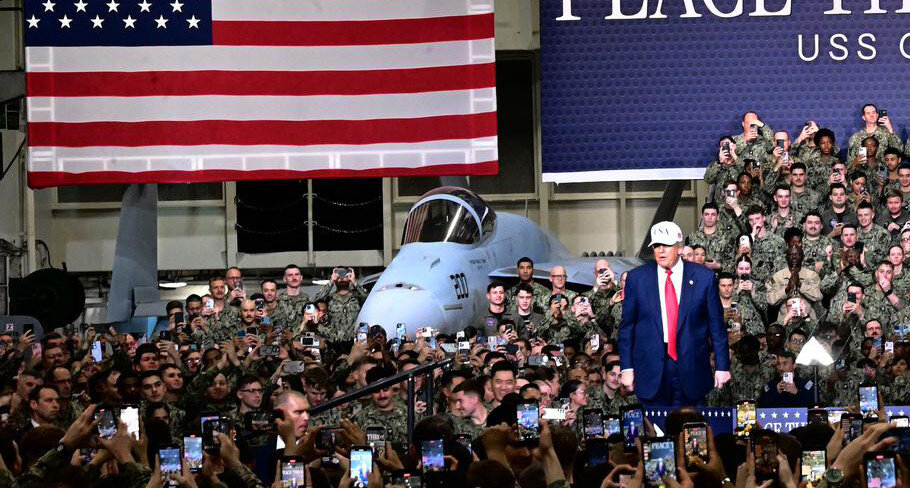Iran urges UN to take swift action over US president’s threatening remarks

TEHRAN – Iran’s ambassador to the United Nations has urged the world body to take urgent action following statements by U.S. President Donald Trump about resuming nuclear weapons testing, describing them as a grave threat to global peace and a violation of international law.
In a letter to UN Secretary General Antonio Guterres and President of the UN Security Council Michael Imran Kanu on November 4, Saeed Iravani denounced the “reckless” and “alarming” statements by U.S. President Donald Trump concerning the possible resumption of nuclear weapons testing.
“This move amounts to flagrant violation of the United States’ binding obligations under Article 6 of the Nuclear Non-Proliferation Treaty with regards effective actions for nuclear disarmament,” the letter read.
The 1996 Comprehensive Nuclear Test-Ban Treaty (CTBT), to which the U.S. is a signatory, prohibits nuclear testing. Consequently, the majority of nuclear-armed countries have not conducted tests in decades. According to the UN, Russia (then the Soviet Union) performed its last test in 1990, followed by the United Kingdom in 1991, the U.S. in 1992, and both China and France in 1996. North Korea is the only nation to have carried out nuclear tests in the past two decades, with its most recent occurring in 2017.
In his letter, Iravani also touched upon Washington’s airstrikes, on June 24, 2025, on Iran’s peaceful nuclear facilities, dismissing the attacks as blatant violation of international law and the UN Charter. This comes as Trump has recently threatened to order fresh attacks should Tehran try to repair the three sites hit, including the Natanz uranium enrichment complex and Isfahan nuclear power plant.
On June 13, Israel launched a blatant and unprovoked act of aggression against Iran, triggering a 12-day war that killed at least 1,064 people in the country, including military commanders, nuclear scientists, and ordinary civilians. The United States also entered the war by bombing three Iranian nuclear sites in gross violation of international law. The nuclear facilities were all being monitored by the International Atomic Energy Agency (IAEA).
Days ago, the United Nations Special Rapporteur on the situation of human rights in Iran, Mai Sato, described the 12-day U.S.-Israeli military aggression against Iran as a “clear and blatant violation of the UN Charter,” warning of its devastating human and environmental consequences.
In a report presented to the Third Committee of the UN General Assembly, Sato said the joint Israeli–U.S. military offensive brought immense suffering to the Iranian people — suffering that, she noted, “deserves redress and compensation.”
“These attacks should never have occurred,” Sato said. “They carried the risk of catastrophic humanitarian and environmental consequences that could have destabilized the entire region.”
Sato emphasized that the use of force by Israel and the United States constituted a “flagrant breach of international law and the UN Charter.”
The report highlighted the human toll of the conflict, noting that roughly 1,100 people — including women and children — were killed, and that hospitals, schools, and civilian infrastructure were among the targets. One of the most controversial strikes hit Evin Prison in Tehran, which the rapporteur described as “unjustifiable.”
Beyond the casualties, Sato said the war displaced millions of Iranians and severely disrupted healthcare for vulnerable groups. “Pregnant women were denied prenatal and emergency care,” she noted.
The conflict ended on June 23, when the U.S. President announced a ceasefire agreement between Iran and Israel. The Islamic Republic of Iran reiterated that it had not initiated hostilities, and declared that it would halt its response if Israel ceased its unlawful aggression.
